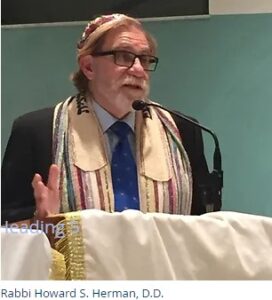The New Year: Sanctity, Return, and the Heart of Renewal
As we celebrate on this secular New Year, we enter a moment that feels suspended in time. The world outside continues at its usual pace — emails, errands, obligations — but here, in this sacred space, time slows. It softens. It opens. These days are not simply dates on a calendar. They are an invitation. A threshold. A doorway into a different kind of seeing.
Any new year asks us to step out of the familiar rhythm of our lives and into a deeper rhythm — the rhythm of the soul. It is a time set apart, not to escape the world, but to re‑enter it with greater clarity and purpose.
The Hebrew word for holiness, kedushah, means “to set apart.” But holiness is not about distance. It is about attention. Something becomes holy when we notice it, when we honor it, when we treat it as worthy of care.
A new year is holy because it asks us to notice our lives — truly notice them. To look at the choices we’ve made, the relationships we’ve tended or neglected, the habits that shape us, the dreams we’ve postponed. It is a moment to ask:
Am I living the life I meant to live?
Not with judgment, but with honesty. Not with shame, but with curiosity.
Teshuvah is often misunderstood as repentance, as apology, as regret. But at its core, teshuvah means “return.” Return to what? To the center. To the truth. To the person we know ourselves to be beneath the noise and the fear and the habits that have hardened over time.
Judaism teaches that the soul is pure. Not perfect — pure. There is a difference. Perfection is impossible. Purity is essence. It is the spark of divinity within each of us that cannot be extinguished.
Teshuvah is the journey back to that spark.
It is not about becoming someone new.
It is about remembering who we already are.
In much of the world, the New Year is a clean slate — a break from the past. But Judaism sees time as a spiral. We return to the same themes each year — creation, judgment, renewal — but we return with new eyes, new experiences, new wisdom.
We are not the same people we were last New Years.
We have lived.
We have lost.
We have learned.
We have grown.
And so the questions of this season land differently. They land deeper.
The New Year is not only about introspection. It is about responsibility. Our tradition teaches that holiness is not found in isolation but in relationship — with ourselves, with others, with the world, with God.
Holiness is not a feeling.
Holiness is a way of living.
It is the courage to repair what we have damaged.
It is the humility to ask forgiveness.
It is the willingness to begin again.
We often imagine transformation as dramatic — a sudden shift, a bold resolution. But Judaism teaches that real change is usually small, steady, and quiet.
A little light pushes away much darkness.
One softened judgment.
One repaired relationship.
One moment of generosity.
One act of courage.
These small acts accumulate. They create momentum. They reshape the contours of our lives.
The New Year is not a demand for perfection.
It is an invitation to possibility.
And we do not enter this New Year alone. Jewish prayer is written in the plural —if we have sinned, we seek forgiveness, we ask for blessing — because our destinies are intertwined.
We stand together today as a community in this 2026, as a people, as a family. Our voices rise together. Our stories intertwine. Our hopes become shared.
Holiness is something we build with one another.
At the heart of the Jewish vision for the New Year is a profound and hopeful truth: every human being is capable of renewal. Not because we erase the past, but because we carry within us the divine capacity to grow beyond it.
The New Year invites us to live with greater awareness — to notice the holiness embedded in the ordinary. It calls us to soften our hearts, to act with responsibility, to trust that even small acts of goodness can transform the world.
Ultimately, 2026 is not about becoming someone new.
It is about becoming more deeply, more beautifully, more courageously who we already are.
May this New Year be a year of return.
A year of awakening.
A year of compassion.
A year of courage.
A year of possibility.
A year of holiness.
And may we enter it together, with open hearts and renewed spirits.

